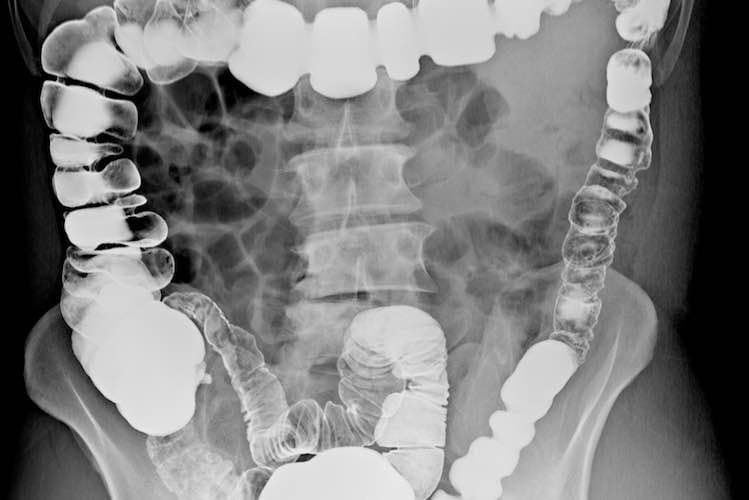What is a barium enema?
Barium enema is a test that allows your doctor to examine the lower part of your bowel using a white fluid (called barium) to coat the walls of the bowel, and air to help view the bowel wall. Barium shows up clearly on X-ray and gives a distinct picture of the outline of your bowel, showing up any abnormalities.
Why is this test done?
A barium enema test may be ordered for people who have experienced altered bowel habits, constipation, ongoing diarrhoea, unexplained weight loss, or who have passed blood in their stools. It can be done to make or confirm a diagnosis. In many places, this test has largely been replaced by colonoscopy, but it is still occasionally needed to help diagnose bowel problems.
What do people need to do to prepare for a barium enema?
The bowel needs to be completely clean so the area to be examined can be seen clearly. Before the test, you will be asked to take a special laxative, usually in the form of a drink that you make up at home. Sometimes you may also need to use a suppository (a medicine that’s delivered via the rectum). These all help to clear the bowel. You will also be asked to eat a special diet and drink plenty of clear fluids, usually starting a day or 2 before the test. As part of this process you will probably experience watery diarrhoea. Some people also require a small enema if they have been constipated.
What happens during the test?
You will be asked to change into a hospital gown. Once in the room, you will be asked to lie on an X-ray table.
A lubricated tube is then inserted into your rectum (back passage), and the barium run in. Air may then be directed into the bowel via the tube. This can cause some minor discomfort or cramping.
As each X-ray is taken, you will be asked to lie completely still and hold your breath. When the doctor is happy that enough pictures have been taken, the tube will be removed and you will be allowed to go to the toilet.
What happens after a barium enema?
You will need to stay near a toilet for about 15 minutes after the test, as there will be some barium and air still inside you. You may even pass small lumps of barium in your stool for a couple of days.
You should drink plenty of fluids for the next few days to flush the barium through your bowel. You can return to eating a normal diet after the test. Plan to have someone available to drive you home when the test is finished.
The results of the test will be sent to the doctor who referred you. Make a follow-up appointment with your referring doctor to discuss the test results.
What are the risks?
- There is a very small risk of putting a hole in the side of the bowel.
- There is a very rare chance of barium leaking through a hole already present in the bowel but not previously known about.
- Rarely, the barium might stay in the bowel and cause an obstruction.
- Pregnant women should not undergo this test.
Further information and support
Talk to your doctor. Contact the hospital or radiology centre where you will be having the barium enema.

